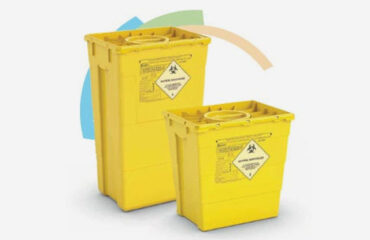The Reclaim Waste PDFs
Table of ContentsA Biased View of Reclaim WasteIndicators on Reclaim Waste You Need To KnowThe Single Strategy To Use For Reclaim WasteNot known Factual Statements About Reclaim Waste Some Ideas on Reclaim Waste You Should Know
Residential sewer waste refers to the waste and products from a property septic tank. The correct administration and disposal of domestic sewage waste call for liquid waste to be transferred to a sewage therapy plant where the appropriate approaches and equipment are applied to cleanse and dispose of waste.
Business waste commonly includes prospective threats, such as flammable products or a mixture of liquid and strong waste products, and requires an advanced and detailed disposal process. The disposal of industrial waste generally includes the purification of waste prior to transport to make certain safe and appropriate disposal. Hazardous waste is created from by-products and drainage of commercial processes and manufacturing.
This kind of waste can not utilize the very same sewer monitoring transportation or procedures as septic or business fluids. The commercial waste administration procedure calls for the assessment and testing of fluid waste prior to it goes through the disposal process (industrial wastewater treatment). Overflow waste is the liquid waste that comes from overflow and excess stormwater in extremely booming locations or cities
Drainage waste can cause contamination and flooding if not dealt with appropriately. Find out more regarding sewer cleaning and waste management. Making sure proper waste administration can protect against calamities and minimize ecological injury. Both people in property settings and professionals in business or production markets can gain from understanding the processes and guidelines of liquid waste management.
All about Reclaim Waste
Get in touch with PROS Providers today to find out about our waste management and disposal solutions and the appropriate ways to take care of the fluid waste you produce.
(https://triberr.com/reclaimwaste1)This supposed 'wastewater' is not just an essential source but, after treatment, will be launched to our land, waterways or the sea. Used water from commodes, showers, baths, cooking area sinks, laundries and commercial processes is understood as wastewater.

water made use of to cool machinery or tidy plant and equipment). Stormwater, a form of wastewater, is overflow that moves from farming and metropolitan locations such as roofing systems, parks, gardens, roadways, paths and rain gutters right into stormwater drains, after rainfall. Stormwater moves without treatment directly to neighborhood creeks or rivers, eventually reaching the sea.
The 7-Minute Rule for Reclaim Waste
In Queensland, the majority of wastewater is dealt with at sewer treatment plants. Wastewater is moved from residential or industrial sites with a system of drains and pump stations, referred to as sewerage reticulation, to a sewage treatment plant. Local governments develop, preserve and operate most sewer treatment plants. Operators are accredited under the Environmental Management Act 1994 to discharge treated wastewater at an acceptable ecological criterion right into rivers.
The Division of Natural Resources encourages neighborhood federal governments regarding managing, operating and preserving sewage systems and treatment plants. In unsewered locations, local federal governments might require owners to install individual or house sewer therapy systems to treat residential wastewater from commodes, cooking areas, washrooms and washings. The Department of Natural Resources authorises making use of house systems when they are proven to be effective.
The majority of stormwater gets no therapy. In some new subdivisions, therapy of some stormwater to remove litter, sand and crushed rock has begun using gross toxin catches. Wastewater therapy occurs in 4 stages: Eliminates strong matter. Bigger solids, such as plastics and various other items mistakenly discharged to sewers, are gotten rid of when wastewater is travelled through screens.
Wastewater after that flows into large containers where solids settle and are eliminated as sludge. Grease and residue are skimmed from the surface area. Uses little living organisms understands as micro-organisms to damage down and eliminate remaining liquified wastes and great bits. Micro-organisms and wastes are incorporated in the sludge. Eliminates nitrogen and phosphorus nutrients that can create algal blooms in our waterways and intimidate water life.
Little Known Facts About Reclaim Waste.
Nutrient removal is not readily available at all sewage treatment plants due to the fact that it calls for expensive specialised equipment. Clear fluid effluent created after treatment may still have disease-causing micro-organisms - liquid waste removal melbourne.

This usually implies wastewater has to be treated or impurities gotten rid of before it can be released to waterways. Many wastewater moves right into the sewage system. Under click site the Act, neighborhood governments administer authorizations and licences for eco relevant activities (Periods) involving wastewater launches that may have a local influence. The department provides approvals and permits to Ages entailing wastewater launches that might have a local or statewide influence.
Unknown Facts About Reclaim Waste
Tracking supplies accurate details about water quality and can confirm that permit problems are being fulfilled. The details gotten through tracking offers the basis for making water quality decisions.